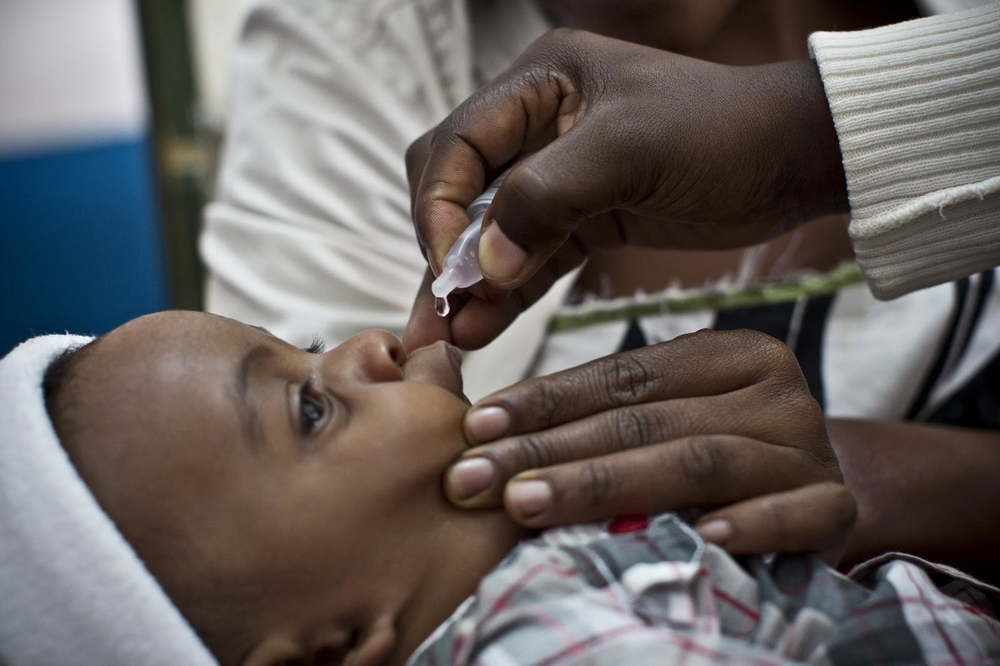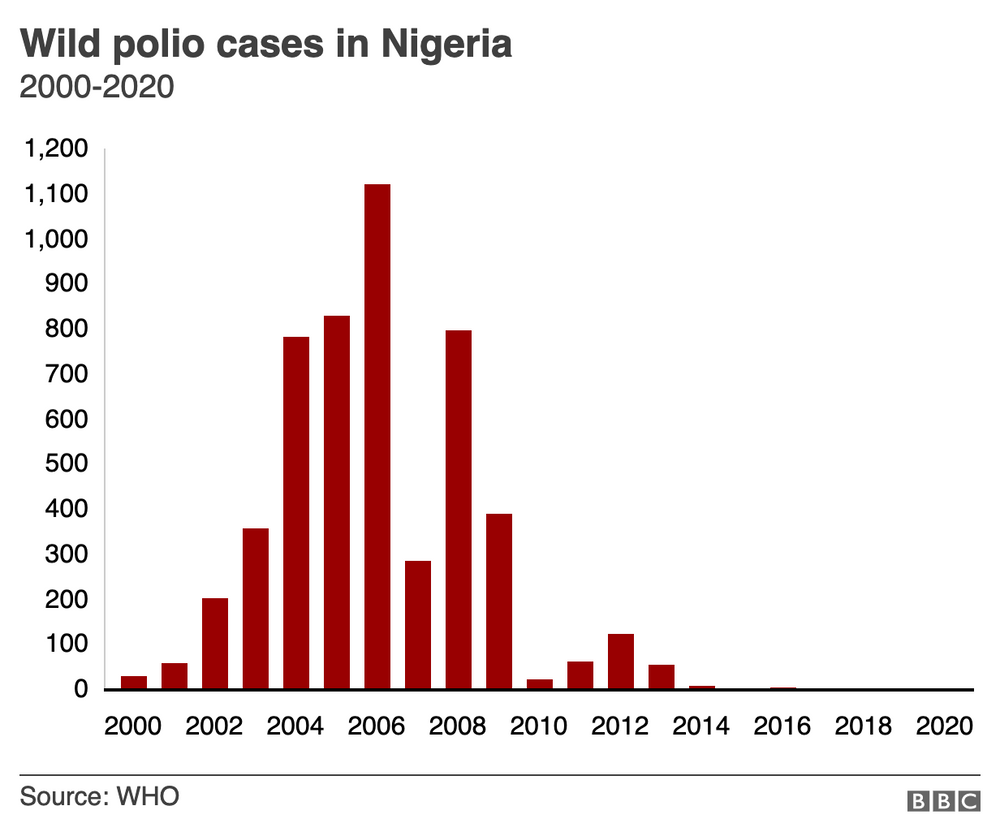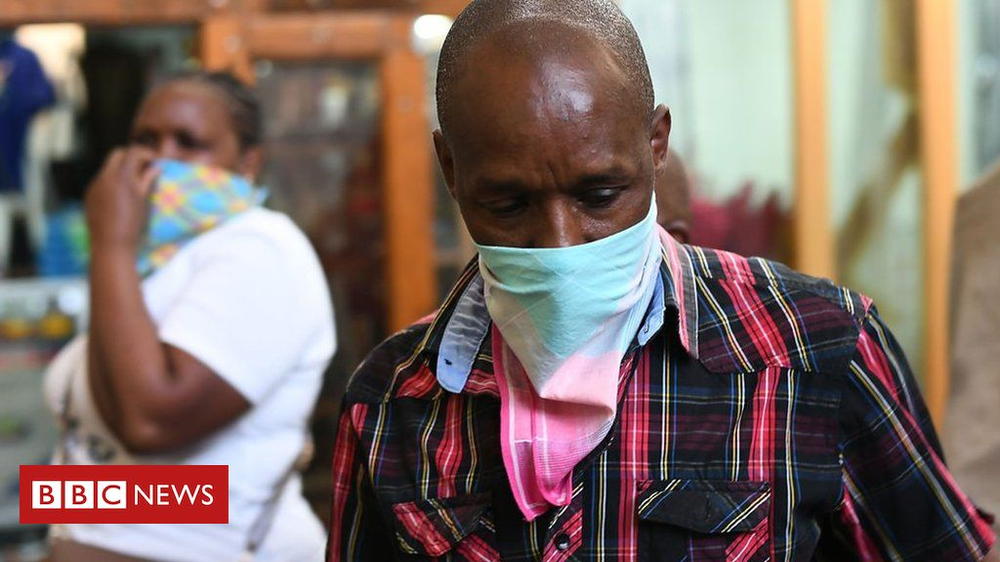After decades of work, the Africa Regional Certification Commission declared the continent free of wild polio. The last case was reported in Northern Nigeria four years ago, and on Tuesday (August 25, 2020) during a World Health Organization (WHO) event the historic announcement was made. The Centers for Disease Control and Prevention (CDC) has pioneered the efforts to eradicating polio entirely in African countries, as the disease affects children under five and can lead to total paralysis. Polio is transmitted between people, and especially through contaminated water that can induce serious effects on a person’s nervous system. In this manner, the CDC as well as other implementing partners recognized that the disease is entirely preventable through immunization and therefore helped to mitigate transmission and other economic or social consequences.

The History of Eradicating Polio in Africa
Over 20 years ago, former South African President Nelson Mandela mobilized resources and leaders to ‘kick polio out of Africa.’ Affecting all spheres of public health, polio paralyzed about 70,000 children on an annual basis. Health advocacy efforts included community health workers, traditional and religious leaders, country heads and with the immense support of donors, children across all remote and central spaces have been reached with the vaccine. A significant part of the campaign to kick polio out of Nigeria included lots of strategic planning and resource allocation to remote areas and dangerous areas that had a history of militant violence. In Nigeria, three years consecutively passed without a single case of wild poliovirus. Subsequently, a process of data review and certification across the 54 countries of Africa began, resulting in a momentous milestone that calls for celebration. Currently, only the vaccine- derived poliovirus remains active in Africa across Nigeria, the Democratic Republic of Congo, Central African Republic and Angola.

The oral polio vaccine has been instrumental in programs aimed at preventing polio globally. In Africa, coalitions, organizations and groups of community workers, hand-delivery of the vaccines changed the way that the vaccination drive took shape. Therefore, people residing in remote communities also had access to preventative measures. Since 1996, more than one billion vaccines have been provided and about 2 million cases of wild polio have been averted.
Challenges of Eradicating Polio
Vaccination and belief in modern medicine is not commonly advocated for in communities that surround capital African cities. In this manner, rumors and misinformation about the vaccine further hindered efforts of immunization. However, garnering trust and educating people on the benefits of the vaccine was pivotal in reaching more than 95% immunity across Africa. Specifically, many case studies cite that survivors who explain their stories were key convincing methods in getting entire communities on board with vaccination processes. Working together has proved to be a successful and efficient method of reaching a new understanding of public health and the importance of vaccines in African countries.
Looking to the Future
While we have finally gotten rid of wild poliovirus, cases in circulating- vaccine- derived- poliovirus (cVDPV). cVDPV arises from the weakened virus in the oral polio vaccine, which is used in LMICs across Africa and the world because it’s cheaper, easier to transport, and ensures a wider spread of immunity. The weakened virus in the oral polio vaccine sheds from a person for up to six weeks after immunization. It works great in settings where it’s hard or unsafe to get public health workers to administer the vaccine. By vaccinating one individual, numerous others are able to get inoculated too.
Very rarely, the weakened virus can once again resurface, causing a cVDPV infection. Paradoxically, the best way to combat the rise in cVDPV is to increase vaccine coverage.
It is important to consider that polio can easily be brought into a country that is polio free, and can thereafter spread like wildfire especially in populations that experience low levels of hygiene and sanitation. As business returns to a certain degree of pre- COVID normalcy, it is imperative that communities are still wary of the fact that wild polio can return and affect children across the continent. Until there is global eradication, ‘the WHO says that it is important countries remain vigilant and avoid complacency.’

Source: https://www.cdc.gov/polio/why-it-matters/africa-kicks-out-wild-polio.htm
Powered by WPeMatico


